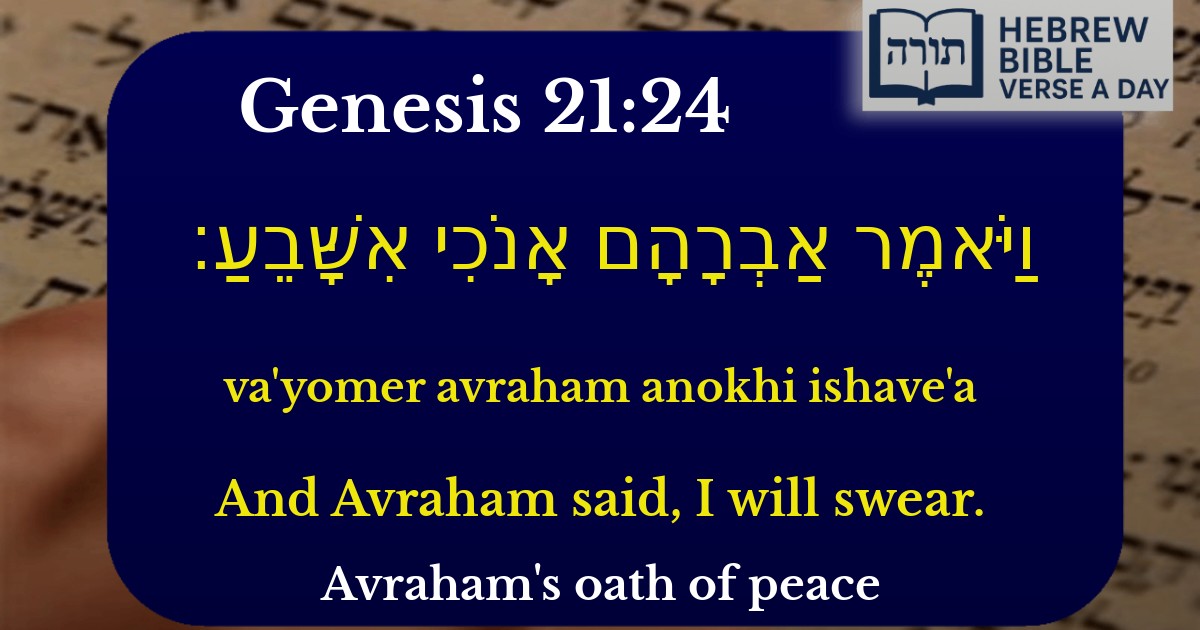Join Our Newsletter To Be Informed When New Videos Are Posted
Join the thousands of fellow Studends who rely on our videos to learn how to read the bible in Hebrew for free!
Hebrew Text
וַיֹּאמֶר אַבְרָהָם אָנֹכִי אִשָּׁבֵעַ׃
English Translation
And Avraham said, I will swear.
Transliteration
Va'yomer avraham anokhi ishave'a
Hebrew Leining Text
וַיֹּ֙אמֶר֙ אַבְרָהָ֔ם אָנֹכִ֖י אִשָּׁבֵֽעַ׃
וַיֹּ֙אמֶר֙ אַבְרָהָ֔ם אָנֹכִ֖י אִשָּׁבֵֽעַ׃
🎵 Listen to leining
Parasha Commentary
📚 Talmud Citations
This verse is not quoted in the Talmud.


Context of the Verse
The verse (Bereshit 21:24) occurs during Avraham's interaction with Avimelech, king of Gerar, after the incident involving Sarah. Avimelech seeks to establish a covenant with Avraham, and Avraham responds by agreeing to swear an oath.
Rashi's Explanation
Rashi (Bereshit 21:24) explains that Avraham's willingness to swear demonstrates his commitment to honesty and peaceful relations with Avimelech. The term "אִשָּׁבֵעַ" (I will swear) indicates a formal oath, which in this context serves to establish trust between the two parties. Rashi notes that Avraham did not rely solely on his word but affirmed it with an oath to remove any doubt.
Rambam's Perspective on Oaths
Rambam (Hilchot Shevuot 1:1-2) discusses the gravity of oaths in Jewish law. An oath (שְׁבוּעָה) is a solemn declaration invoking Hashem's name, binding the speaker to fulfill their commitment. Avraham's oath here reflects his understanding of its seriousness and his desire to uphold justice and truth in his dealings.
Midrashic Insights
Halachic Implications
The Gemara (Shevuot 35a) elaborates on the laws of oaths, emphasizing that they must be made with clear intent and reverence. Avraham's oath sets a precedent for how Bnei Yisrael should approach commitments, especially in interactions with other nations.
Symbolism of Avraham's Oath
Commentators like the Sforno suggest that Avraham's willingness to swear reflects his unwavering trust in Hashem. By invoking an oath, Avraham demonstrates that his word is inseparable from his faith, reinforcing the idea that a tzaddik's promises are sacred.